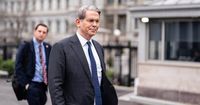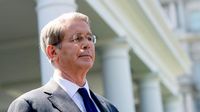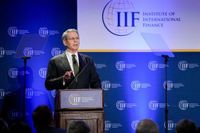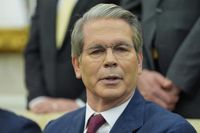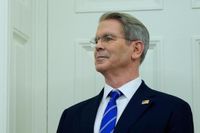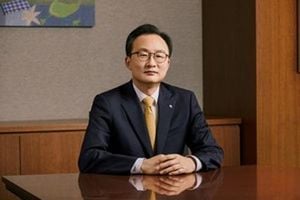Treasury Secretary Scott Bessent stated on Wednesday, April 23, 2025, that the International Monetary Fund (IMF) and World Bank are "falling short" of their main missions and must urgently focus on restoring balance to the global economy. Speaking at the Institute of International Finance during the spring meetings of the two institutions, Bessent expressed concern that both organizations have strayed from their foundational goals, which were established under the Bretton Woods Agreement near the end of World War II.
In his remarks, Bessent emphasized that the purpose of the IMF and World Bank was to promote stability in an unstable world, aligning national interests with international order. "Yet everywhere we look across the international economic system today, we see imbalance," he said. His comments come on the heels of the IMF downgrading its global growth forecast, citing the negative impact of President Trump’s tariffs on trade.
Bessent accused the IMF of suffering from "mission creep," claiming it has devoted too much time and resources to climate change, gender, and social issues at the expense of its core economic responsibilities. “The IMF’s focus in these areas is crowding out its work on critical macroeconomic issues,” he stated, insisting that the organization must return to its primary mission of ensuring global monetary cooperation.
He also criticized the World Bank for its recent emphasis on climate initiatives, suggesting that it should no longer expect "blank checks for vapid, buzzword-centric marketing accompanied by half-hearted commitments to reform." Bessent indicated that the World Bank must use its resources more efficiently and effectively, demonstrating tangible value for all member countries.
Despite his criticisms, Bessent made it clear that the Trump administration does not plan to withdraw from either institution. Instead, he stated, "America First does not mean America alone. To the contrary, it is a call for deeper collaboration and mutual respect among trade partners." He underscored the importance of U.S. leadership in these global institutions, asserting that they serve critical roles in the international system.
Bessent's comments signal a desire to push both organizations to align more closely with the Trump administration's agenda. He stated, "Under the status quo, they are falling short," and called on the IMF and World Bank to step back from their sprawling and unfocused agendas, which he believes have stifled their ability to deliver on their core mandates.
In his speech, Bessent highlighted the need for reforms that would restore equilibrium to the global financial system. He noted that the existing global trading system, which often sees the U.S. absorbing excess production from manufacturing powers like China, is unsustainable. He argued that countries receiving loans from the IMF must be held accountable for implementing necessary economic reforms.
Moreover, Bessent praised China’s rapid economic development but deemed it "absurd" for the World Bank to continue treating China as a developing country. He stated, "If China wants to play a role in the global economy commensurate with its actual importance, then the country needs to graduate up." This remark reflects a growing frustration among some U.S. policymakers regarding China’s status and influence in global economic institutions.
As the spring meetings of the IMF and World Bank unfold in Washington, D.C., global leaders, finance ministers, and central bankers are gathering to discuss the economic fallout from the Trump administration's aggressive trade policies. Bessent's speech comes at a critical time, as the IMF has warned that Trump's tariffs could hinder world economic growth and increase the risk of a global financial crisis.
In a broader context, Bessent's remarks echo sentiments expressed in the recent "Project 2025" report by the Heritage Foundation, which criticized the IMF and World Bank for straying from their core functions. The report suggested that the U.S. should consider withdrawing from these institutions altogether, reflecting a more isolationist perspective among some factions within the Republican Party.
However, Bessent's approach appears to advocate for a more engaged U.S. role in these institutions, emphasizing the need for reforms rather than retreat. He reiterated that the Trump administration is eager to work with the IMF and World Bank, provided they stay true to their missions.
Looking ahead, Bessent mentioned that World Bank President Ajay Banga will present a new energy plan to the bank’s board in June 2025, which could signal a shift towards more pragmatic energy investments. Bessent expressed support for the bank's consideration of lifting restrictions on nuclear energy projects, indicating a potential opening for more diverse energy solutions in global development efforts.
As the dialogue continues between the U.S. administration and the leadership of the IMF and World Bank, it remains to be seen how these institutions will adapt to the demands for reform. The outcome of these discussions could significantly influence the future of international economic cooperation and the role of the United States within these critical global frameworks.
